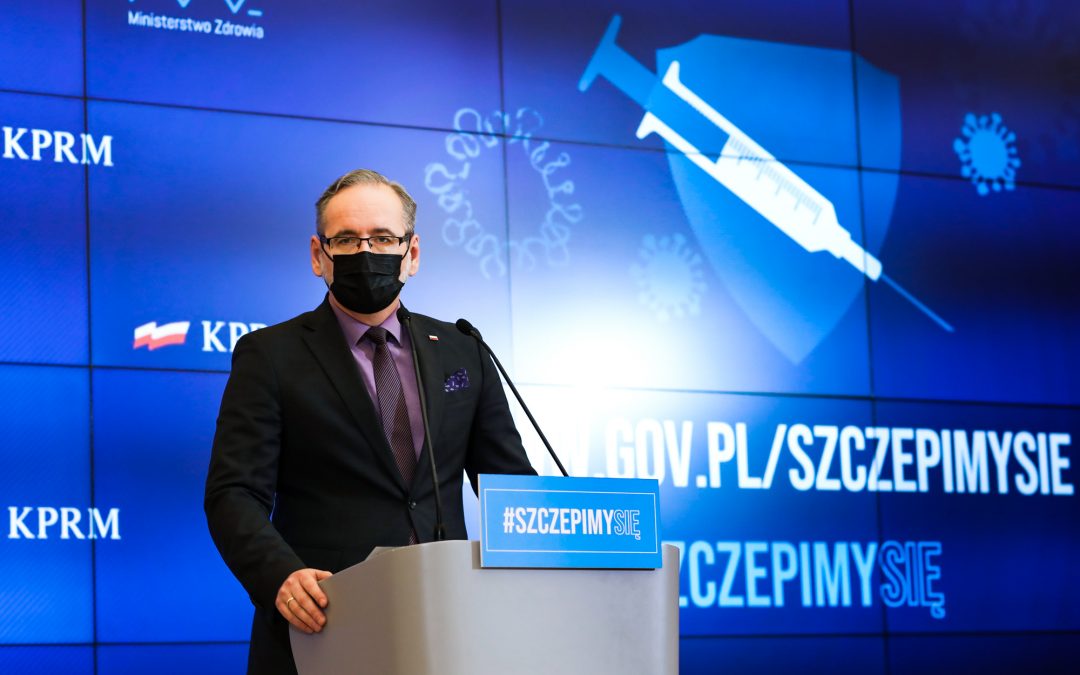Poland’s health minister, Adam Niedzielski, says his country has successfully spearheaded efforts by eastern member states to persuade the European Union to begin renegotiating Covid vaccine contracts next month.
Speaking after a meeting of EU health ministers this week, Niedzielski announced that, “as a result of a Polish initiative, renegotiation of vaccine contracts at the European level will begin in July”.
Na skutek polskiej inicjatywy od lipca rozpoczną się renegocjacje kontraktów szczepionkowych na poziomie europejskim! https://t.co/FA4geyF03b
— Adam Niedzielski (@a_niedzielski) June 14, 2022
Earlier this month, Niedzielski and his counterparts from Bulgaria, Croatia, Estonia, Hungary, Latvia, Lithuania and Romania had urged the European Commission, in a letter seen by Reuters, to “reduce the amounts” of vaccines being ordered. Slovakia and Slovenia have also reportedly joined the Polish-led effort.
Niedzielski notes that, despite improvements in the epidemic situation in Poland and the EU, the vaccine contract obligations negotiated at the height of the pandemic remain unaltered and the size of shipments is still substantial. “That’s why we suggested changing those contracts,” he said.
Warsaw’s proposal is to spread the current two-year delivery scheme over 10 years and involve a newly established institution – HERA, the European Commission’s Health Preparedness and Response Authority – to take over purchasing of the vaccines.
Poland has pulled out of its contractual commitments to buy Pfizer Covid vaccines, citing oversupply and financial strains caused by the influx of Ukrainian refugees.
It acknowledges that its unilateral decision will result in a legal conflict with Pfizer https://t.co/Y97GFUqk4t
— Notes from Poland 🇵🇱 (@notesfrompoland) April 19, 2022
Niedzielski also pointed to fact that his country is “currently shouldering the enormous costs of supporting refugees from Ukraine”, adding that Poland wants the European Commission to reimburse those funds and that the €150 million offered so far from a number of EU funds is “absolutely disproportionate”.
After this week’s meeting, EU health commissioner Stella Kyriakides announced that the commission “will continue working with and on behalf of our member states to ensure vaccine supplies, tailored to their needs, including potential adapted vaccines”.
But she also emphasised that “the pandemic is not over and we need to be ready for the coming months”.
While #COVID19 is no longer at the forefront, the pandemic is not over. We need to be ready for the coming months.
We will continue working with and on behalf of our Member States to ensure vaccine supplies, tailored to their needs, including potential adapted vaccines. #EPSCO pic.twitter.com/WOEzt9P3sN
— Stella Kyriakides (@SKyriakidesEU) June 14, 2022
Poland currently has 30 million Covid vaccine doses in stock, reports Reuters, citing a Polish diplomat. If deliveries were to continue on schedule, by April 2023 a further 67 million will be shipped to Poland. Poland has used a total of 55 million doses since the national vaccination programme began in December 2020.
“There is no way we can still use millions of Covid vaccine doses,” Włodzimierz Gut, a virologist, told Polish Radio, noting that there is not much potential for vaccinating a large part of Polish society. Gut recommended encouraging Ukrainian refugees to get the jab, adding that Ukraine has one of the highest vaccination hesitancy rates in Europe.
The best option is to hand the vaccine over to “poorer countries”, Gut added. “Pouring them away is a waste and a costly one… Also, it’s always better to help someone than to throw it all away.”
Main image credit: Adam Guz/KPRM (under CC BY-NC-ND 2.0)

Agnieszka Wądołowska is deputy editor-in-chief of Notes from Poland. She is a member of the European Press Prize’s preparatory committee. She was 2022 Fellow at the Entrepreneurial Journalism Creators Program at City University of New York. In 2024, she graduated from the Advanced Leadership Programme for Top Talents at the Center for Leadership. She has previously contributed to Gazeta Wyborcza, Wysokie Obcasy and Duży Format.




















